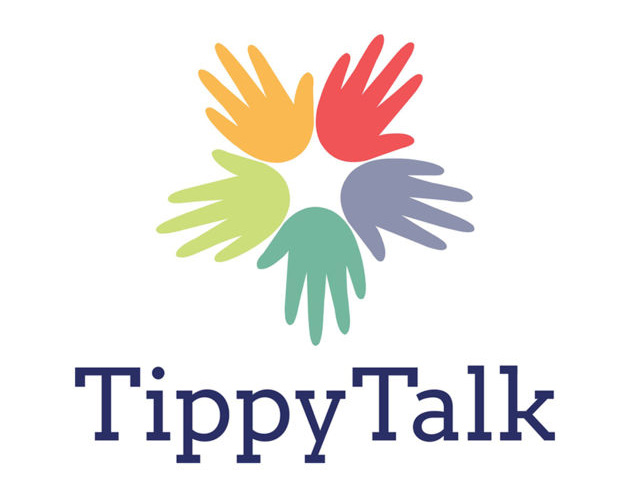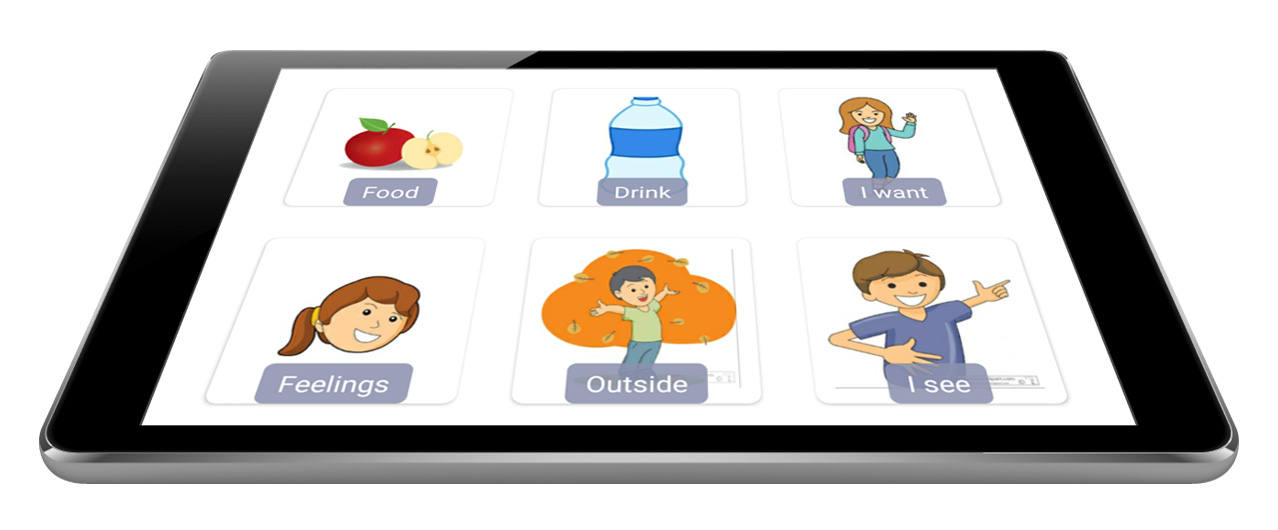Rob Laffan, CEO, TippyTalk
Hailing from Limerick, Ireland, Rob Laffan is a devoted father of two and the creator of TippyTalk, an app that allows those with verbal difficulties to communicate with loved ones.
TippyTalk’s premise is that personal communication pictures are converted into words and sent to a family member or caregiver’s phone.

Rob, who had previously worked in sales management, says the idea for the app came directly from his six-year-old daughter Sadie, who lives with non-verbal autism, back in November 2014. “She did not sleep very well back then: two or three hours per night. It was on one of these late nights – approximately 3 or 4 am – that I was standing at the back door of my house. A notification came in on my phone and Sadie picked it up from the coffee table and handed it to me. I stooped down to her and said: ‘Aww, thanks honey, are you trying to give daddy a message?’ Then I thought: what if I could link her personal communication pictures to programmed text messages?”
Armed with knowledge of robotics and technology from the Bachelor’s degree in engineering that he’d recently completed at Limerick Institute of Technology, and following the completion of several certified programs in non-verbal communication for children as well as adults, he set about creating a device.
The first interpretation of TippyTalk was a device that Rob created as a college project, earning himself the Engineers Ireland student of the year award, and a $16,000 grant. Sadie initially struggled with the new system, sending a series of unintelligible messages. But then, as the pair entered a local fast-food outlet, Rob’s phone flashed with the following message:
Hi Daddy, I want chicken nuggets
“I’d received the most important message of my life – I bought the nuggets with tears rolling down my face,” he recalls. “The girl in the chippy must have thought I really liked their nuggets!”
Soon after, another message from Sadie hit Rob’s phone:
Hi Daddy, I want some fries
“I knew then it was my social duty to do whatever it took to get TippyTalk into other parent’s hands at the most affordable option,” he says.
Rob notes that the first device would have cost around 5000 Euro to reproduce. “This, to me, was a non-runner because I understand how difficult finances for families of children with special needs are. The most logical step was to take the exact same concept but to create an app version of it.”
A year of development trials and tests followed prior to the product hitting the app stores – “It was slow to start with and that was OK because it allowed me to fix bugs” – before American health and disability online magazine Themighty.com produced a video in August 2016 that garnered 30 million views across the world, and the rest is history.
TippyTalk now has thousands of users in over 70 countries. While it’s become a full-time gig for Rob, with six employees and more growth expected to come, he feels most rewarded by the feedback from parents. “I get messages like: ‘Thank you, Today my child told me they love me by text’; ‘Today my child told me they felt sick’; or, ‘Today my child told me they wanted to go to the park to play’,” Rob says. “These alone are what make it all worth it. I took me 35 years on earth to find my calling and I know now that it was TippyTalk and the help it brings to families and children all over the world.”
 Rob shares his thoughts on:
Rob shares his thoughts on:
Being a dad.
It’s the reason I was put on this earth; I hold this role as a father above anything in my life. My mission in fatherhood is to provide my children with a stable foundation that will allow them to grow, blossom and develop into proud, happy and loving adults so that they may continue to do the same for their children if they choose to have any. Nothing would make me happier than to see my children grow to be the socially acceptable adults that we all strive to see our children become. Fatherhood is the single most important role you will ever have in your life. Very easy to mess it all up and very difficult to put it back together.
Promises made.
The challenge I face is the same for any father of two beautiful little girls has, and that is to stay true to the promises I have made to them, which is to protect them, love them unconditionally and to support them in any way I can, for as long as I am on this planet. As parents we find ourselves making promises all the time, some we keep, others for one reason or another we don’t. But we need to understand the impact our decisions have on our children. If I hadn’t kept my promises to Sadie I would never have created TippyTalk.
Bonding.
Sadie is a typical little girl. We love to go shopping and dress up: “Dad looks rather fetching in wigs and make-up”. We enjoy jigsaws and playing with numbers and letters quite a bit. Sadie can put together a 50-piece jigsaw quicker than I can now. Frustrating when a six-year-old kicks your ass at jigsaws. But it’s the bond we create while we are doing them is what is the important part.
Manning up.
My own personal opinion is that a father’s role in today’s society is still viewed as a protector, educator, provider. This might be a cultural question but in Ireland I feel this is still the majority’s view. It’s a shame because when I was growing up you were taught to keep your emotions under lock and key. The phrase “Man Up” was used a lot and I feel it is wrong. A man that can show emotion is a real man in my eyes. I used to bottle my emotions and it produced negative behaviours. My children would be witness to this negativity and in turn they deemed this as acceptable behaviour from men. Today I am not afraid to show [emotion]. And my children respect me more for it because it makes me human.
Technology.
I look at the world and worry about the effect technology is having on young people. These kids and young adults are cataloging their entire lives online. Every silly little thing they do is captured for the world to see FOREVER, and they just don’t seem to understand this. #Ifeellikeanoldman.

